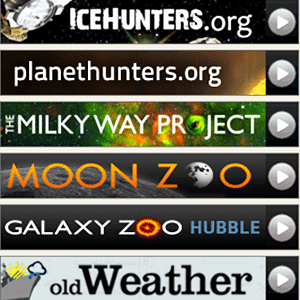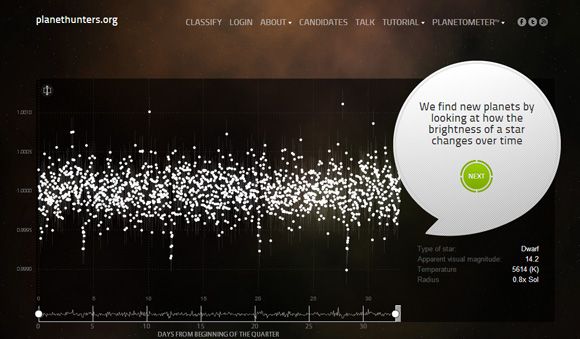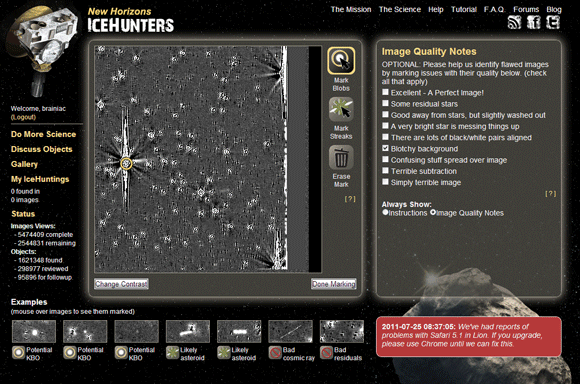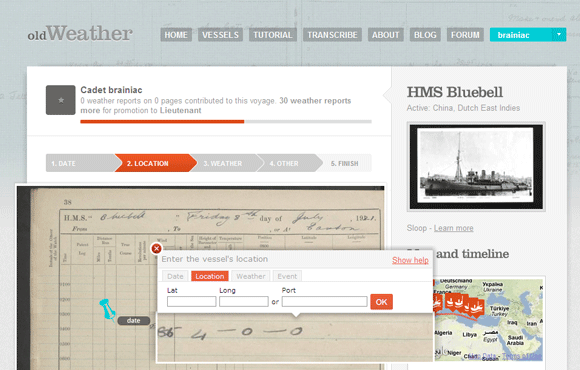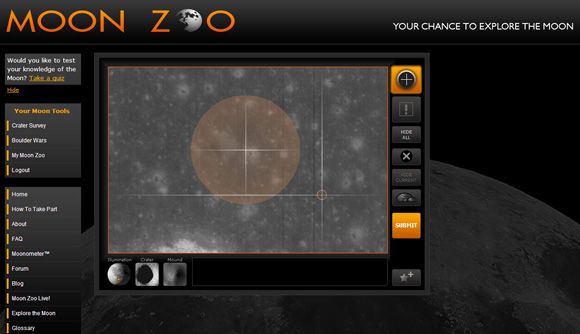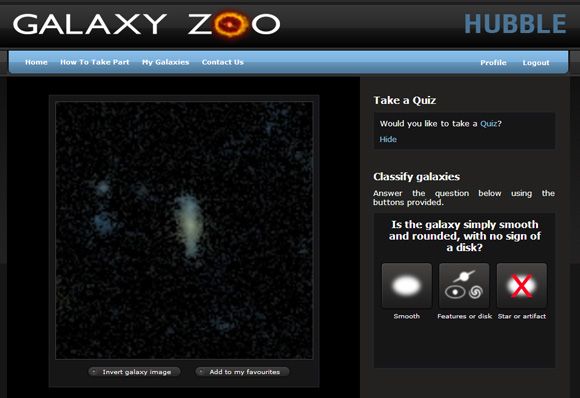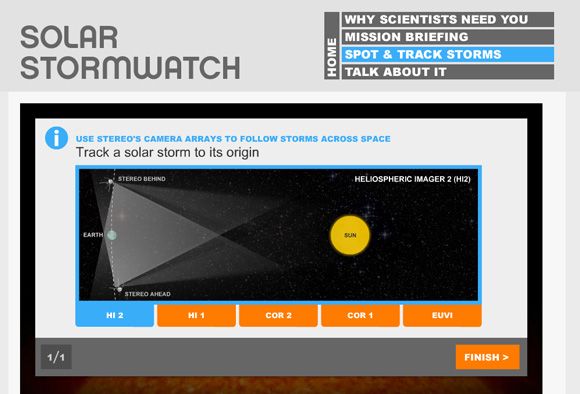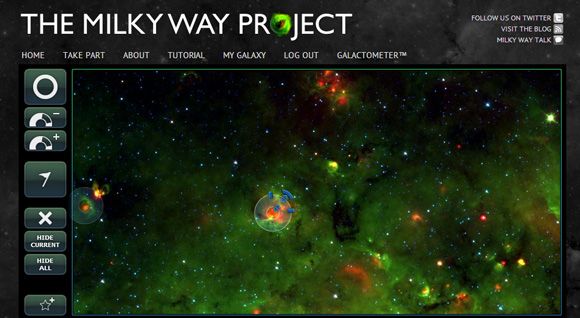Science has gone social. Research scientists maybe crunching away at their super-computers but they aren’t neglecting the remarkable potential of the most powerful computer of all – the human brain. When you put a few billion together you get a massive neural network that no computer can match. That’s crowdsourcing for you.
One of the better examples of citizen-science projects can be found online at Zooniverse. Zooniverse is a science portal that hosts many live research projects requiring the participation of inquisitive minds (age, nationality, and gender no bar).
Zooniverse asks for your brain cells rather than your CPU cycles unlike what we had seen before with some other crowdsourced projects in 10 Ways To Donate Your CPU Time To Science.
Zooniverse not only promotes science and scientific aptitude, but it also gives the young a meaningful way to use their browsers for some edutainment. It got a brief mention earlier at - 6 More Interesting Websites A Space & Astronomy Buff Should Visit.
Let’s look at the nine ongoing citizen science projects that are on right now. Create your free account and log into these space missions.
Planet Hunters
NASA’s Kepler space mission is surveying the vast space around us using the Kepler space telescope. It’s trying to search out planets by using brightness measurements, or "light curves," taken every thirty minutes around 150,000 stars. A dip in the brightness as a planet passes before a start could be a clue to their presence. You can help out in this search by logging in and following the instructions. Who knows, you might get to have a planet named after you!
Ice Hunters
The unmanned NASA mission to chart the Pluto-Kuiper Belt could do with your help as it tries to discover more icy worlds beyond Pluto. The spacecraft is due to arrive near Pluto by 2015. This is one of the high-priority space missions undertaken in recent times.
Old Weather
Old weather patterns hold clues to the future, especially when we are dealing with climate change and global warming. As scientists try to build a climate model using historical data, you can assist by transcribing entries from old ship logbooks. The log books detail weather conditions as they existed. You have to decipher the log book to enter the date, location, weather, and any other information.
Moon Zoo
Hitch a ride on the Lunar Reconnaissance Orbiter and explore our satellite. Work on the high detail images and work out the number of craters on as much of the Moon's surface as possible.
Galaxy Zoo: Hubble
They say that the Hubble has given us data that will take years to unravel. Shorten the time by pitching in with Galaxy Zoo and helping to classify galaxies according to their shape. This is an updated follow-up of the oldest project on Zooniverse and so far more than 250,000 people have logged on. It’s also probably the simplest of all the live projects.
You can participate in two more Galaxy Zoo projects that use telescopic astronomical data - Galaxy Zoo: Mergers and Galaxy Zoo: Supernovae
Solar Stormwatch
Become a stormwatcher and help the scientists’ burn through the pile of data that has collected over the years. Interactive zoomable maps take you close to the sun. A spot of training and you will be all set to track solar storms in space. You also get to spot comets and other interesting extra-terrestrial objects. There are various levels to this and you have to complete your training to unlock each of them.
The Milky Way Project
This citizen science project sounded like fun because it’s about drawing bubbles. But these are supposed to be stellar bubbles on a large 800x400-pixel image of a part of our galaxy. You also have to be precise with the tools because the project is an attempt to map the Milky Way using these infra-red images.
The nine projects will straightaway pique the interest of an astronomy buff. But you don’t have to be one to understand the significance of knowledge in these free scientific tools. It will make you really appreciate the kind of effort that has gone into the website. So, become a citizen scientist and tell us what you think about Zooniverse.

